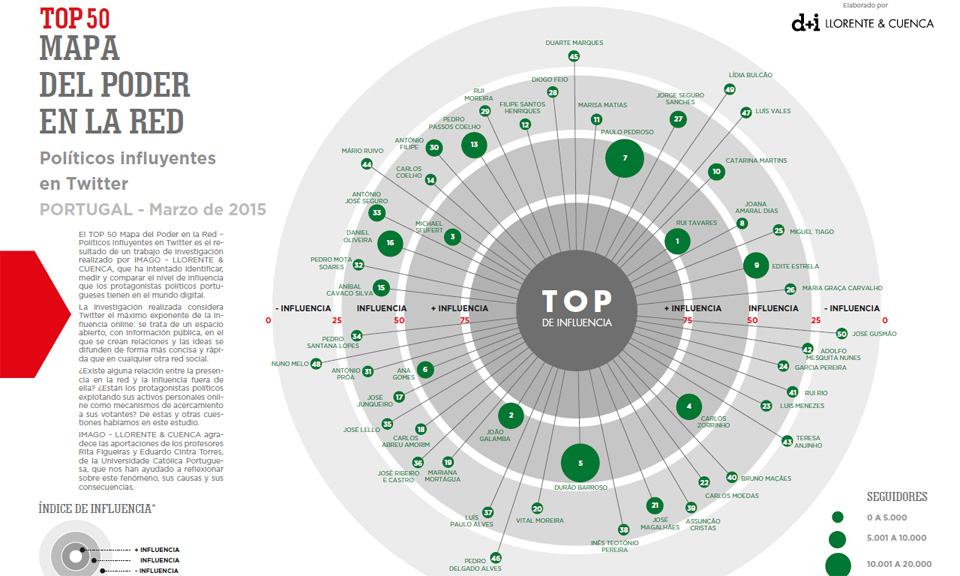The influence mapping of political players in digital platforms, carried out since the beginning of this election year in Portugal, shows cross-cutting signs in relation to the universe of organizations in general, in the challenge inherent to the users’ preferences, whether they are voters, customers or consumers. And, contrary to what it may seem (given the low use rate of this platform across the country), the collected sample is quite representative, since Twitter has a high percentage of institutional opinion leaders, whether it is newspapers and journalists, general opinion leaders or politicians.
To what extent does Twitter reflect a lax system of democratic representation from an individual point of view? Is there any relation between the use of new digital platforms and the eventual prudence or discomfort that Portuguese politicians feel when strengthening the dialogue with voters?
Tiago Vidal, Managing Director of LLORENTE & CUENCA in Portugal



